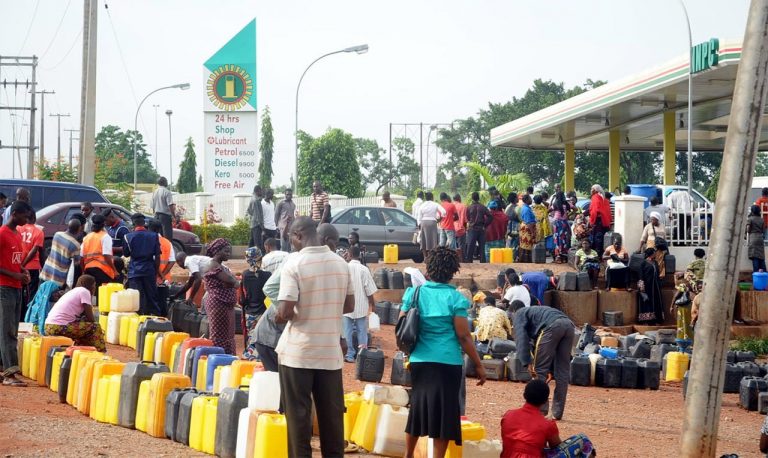The President of the Petroleum and Natural Gas Senior Association of Nigeria (PENGASSAN), Mr. Festus Osifo, has identified an outdated and inefficient distribution network as the primary cause of persistent fuel queues across the country.
Speaking at the ongoing 2024 PENGASSAN Energy and Labour Summit in Abuja on Thursday, Mr. Osifo highlighted the shortcomings of Nigeria’s current fuel distribution system, emphasizing its inability to meet the demands of the nation’s growing population.
“The distribution chain in the downstream sector of our oil and gas industry is remarkably weak,” Osifo stated. “This inadequacy is the reason we continue to witness recurring fuel queues at filling stations nationwide. Even when temporary solutions are implemented, the problem inevitably resurfaces because our system is neither modernized nor sufficient.”
He further criticized the country’s reliance on a single point of product importation and the use of trucks for nationwide distribution, noting that no other country of Nigeria’s size and population depends on such a limited framework for fuel supply.
In addition to the flawed distribution infrastructure, Osifo pointed out that poor road conditions and frequent flooding exacerbate fuel scarcity by hindering effective transportation and consistent supply to filling stations across Nigeria.
To address these challenges, the PENGASSAN president called for urgent and comprehensive reforms aimed at overhauling and strengthening the nation’s fuel distribution and value chains. “We need to develop and enhance our distribution systems to ensure they are efficient and reliable. Without such improvements, fuel shortages will continue to plague our economy and disrupt daily life,” he asserted.
Osifo also drew attention to the high cost of local oil production in Nigeria, which he noted is 15 to 20 percent higher compared to other parts of the world. He attributed this disparity partly to the additional security burdens shouldered by oil and gas companies operating within the country.
He urged the government to assume responsibility for providing security in the oil and gas sector, a move he believes would significantly reduce production costs and make the industry more competitive globally.
Addressing the persistent issue of oil theft, Osifo called for the strengthening of existing laws and the implementation of stricter sanctions against perpetrators. “Harsher penalties are necessary to deter illegal activities and promote integrity within the industry,” he emphasized.
The summit, which brings together key stakeholders in the energy and labor sectors, continues to explore solutions to the myriad challenges facing Nigeria’s oil and gas industry.




